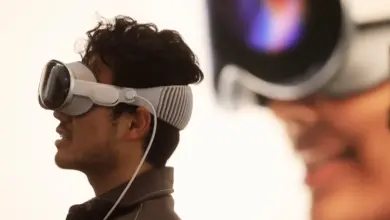The feloul are for the most part not against the revolution itself, but believe it took a wrong turn after former President Hosni Mubarak was ousted, and are against continued street protests. The hardcore among them wholeheartedly support the fallen president and feel he should have never left. And to an even more select group, cyber attacks on the revolution are due.
Who are the feloul? The word describes remnants of the previous regime and anyone who supported it and was sad to see it ousted from power. Feloul sites and groups proliferate on the internet, the same forum largely credited as a catalyst for the outbreak of the revolution. However, that space has expanded to become more than just the protector of the uprising, also housing the revolution's opponents.
The juggernaut of pro-Mubarak Facebook groups is "Ana Asef Ya Rayes" (I’m Sorry Mr. President), which currently boasts over a hundred thousand members.
In a 22 September statement, the group's administrators (or the Sons of Mubarak, as they refer to themselves) said they were inspired to support “a man, soldier, a leader, a great president at a time when all others have deserted him.”
However, while there is a sizable online contingent that unabashedly supports Mubarak, it doesn’t cover the entire spectrum of counter-revolutionary sentiment. Indeed, many feel that the majority of Egyptians reside somewhere in between Mubarak supporters and Tahrir protesters.
Members of the Facebook group “Feloul & Proud" seem to fall into this category. Although one of the administrators of the group happens to be Abla Ezz, wife of the imprisoned steel magnate and former ruling National Democratic Party stalwart Ahmed Ezz, its members feel that the use of the word feloul in the title is more ironic than anything, and believe that while the revolution itself was understandable, what has happened since is harming the country.
With almost 9000 members, the group decries the protests that have taken place following the ouster of Mubarak and laments the deterioration of the economy. Members feel that continued protests – whether in Tahrir or in factories and workplaces – are irrevocably harming Egypt.
Member Abir Zaker said, “I was added to the group and I went through the postings and some were mocking and the name itself is misleading; it’s not an attractive name, but this is how I feel and what I think. We want the best for our country. I agree with the revolution and in the last decade Mubarak was not doing well, but this is not the way to express our beliefs, it’s getting worse and we’re making it worse.”
Zaker mentioned the lack of security since the revolution, and the drying up of foreign investment because of the instability. She also said that the security apparatus must be the strongest in the country, admitting that the Interior Ministry needed major changes but not to the point of destroying the body.
“This revolution started well and we had a right to revolt, but we took a wrong turn somewhere and I am not with that," she said. "I may not like the name of ["Feloul and Proud"] but I like the ideas that are being presented. And you should not attack me for my views if you claim the revolution was about democracy."
The pro-Mubarak or anti-protest movement is not just on Facebook, though. Blogs have sprung up primarily designed to attack revolutionary activists.
"Masry 25" is one such blog, masquerading under the guise of a news source. One of its entries features a series of private photographs of activist Alaa Abdel Fattah, under a screaming headline that he is an atheist. Such a smear post raises questions about online privacy in the wake of current political tensions.
Bassem Khalifa, an activist himself, happened to be in one of the pictures "Masry 25" ripped from Abdel Fattah’s Facebook page. “I am offended, disgusted and, frankly, a little worried," Khalifa said. "Especially since you can be exposed this way without actually your own private domain being compromised. It is despicable. It's playing politics on the basest level possible and catering to the lowest common denominators of motivations: xenophobia, hate, discrimination, fear.”
Khalifa added that this invasion of privacy has become more ubiquitous with the advent of current technology and those who enter the public domain are destined to continue to be subjected to such invasions.
“Google, social media and smartphones have all placed the minutiae of our lives in the cloud. It's a very different world now and I don’t think we've yet seen all the social and political impacts,” he said. “I imagine that one such impact may be the normalization of things that are currently taboo."
Feloul groups have also taken to producing popular YouTube rap videos in support of the police. In one of those videos, rappers from the group Cupo, a self-proclaimed mouthpiece of the Ministry of Interior, reminds viewers that not all policemen are bad and that whoever doesn't respect them will "taste some of their torture." Police brutality has been cited by revolutionaries as one of the factors spurring on the revolution. Anti-regime rap videos posted on YouTube have multiplied in the months preceding the revolution.
With a seemingly increasing counter-revolutionary presence online, the internet feels a decreasingly protected zone for activists, especially for those who waged their anti-regime campaigns on the web at at time when street politics were stifled.




